In the old days if you wanted to research your family history you had to do it in physical genealogy archives. All this has changed with the internet and the database sites like Findmypast, Ancestry and Family Search making basic research very easy. But only 10% of genealogical records are available online, which means the other 90% are in archives. So, if you want to add depth to your research, you need to access records in archives. This post is an overview of archives and what to do if you can’t visit one.
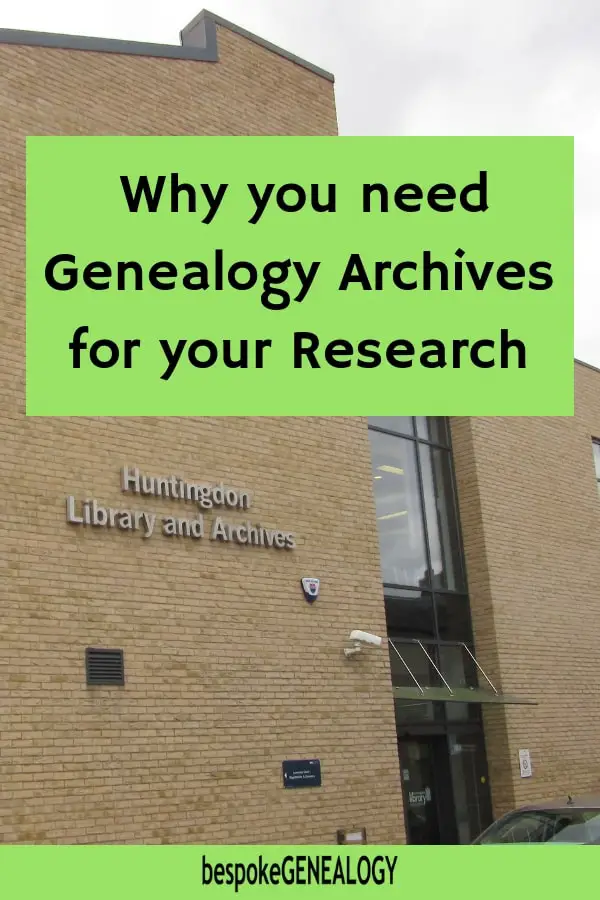
Different types of archives
Any individual or organization can have an archive, but these are the main types:
- National archives. Most countries have a central archive, usually based in the capital city. These repositories usually hold documents relating to the central government as well as culturally significant items and books. Some countries, such as the UK, separate their national archives and library into separate organizations, whereas others, like Canada have a combined collection.
- Local government archives. Many countries have regional archives at state, province, county and municipal level or a combination of all of them. Canada, for example, has archives in the provinces and territories as well as some of the larger cities. The UK has archives in Scotland, Wales and Northern Ireland as well as in most counties and some larger cities.
- Religious archives. Many faiths will have central archives and/or collections at places of worship. These collections may only be accessible to members of that faith, or they may be open to the general researcher.
- LDS. The Family History Library, in Salt Lake City, Utah, is run by the Church of Jesus Christ of Latter-Day Saints (LDS). This library contains millions of genealogical records from around the world, mostly on microfilm, but now being degitized. The LDS also has Family History Centres around the world.
- Academic institution archives. Universities and colleges usually have archives relating to the history and academic work of that institution. Many will also have “special” collections, often donated by individuals or organizations and deemed to be culturally of historically important. These collections may then have been expanded by the addition of further work. An example of this is the Scottish Business Archive held by Glasgow University. This collection has material going back to the 18th century and focuses on companies and industries (like shipbuilding and textiles) that were based in the west of Scotland.
- Corporate archives. Some companies have a long history and built up significant archives, especially if they have acquired other businesses. Such an example is the General Motors archive, based in the GM Heritage Centre in Sterling Heights, Michigan. Company archives may have limited access and researching can only be done by special arrangement.
- Museums, especially larger ones, often have archives. The Museum of London for example, has a huge archive of material dating back to the early days of the city.
- Historical Societies can amass collections over the years. Examples include the Etobicoke Historical Society in Toronto and the North Yorkshire Moors Railway Trust.
- Genealogy Societies often hold archives. The Society of Genealogists in London, for example, has a very large collection containing genealogies of hundreds of families as well as other related material. Some local family history societies have also built up archives containing, for example, family histories and transcriptions from church records.
- Trade union and professional associations. Examples of these organizations with significant archives include the Teamsters in the US and the Royal College of Nursing in the UK.
Types of Records held by Archives
Archives hold many different types of records, in fact anything that is considered to be in the public interest. The records are usually unique, unpublished, rare and often one of a kind. Some rare published material will also be kept in archives. Examples of the type of material of interest to genealogists are:
- Historical maps
- Correspondence
- Photographs
- Civil birth, marriage and death records
- Church records
- Militia muster rolls and other military records
- Electoral registers
- Legal records
- Early telephone books and directories
- Divorce records
- School records
- Health records
- Land records
- Employment records
- Historic newspapers
- Wills
Finding an archive
There are links to many archives on the OnGenealogy website. You’ll find links to all the county archives in England, Wales and Scotland (in the parish register guides) in the Resources section of this website. You can also use the Archives Grid to search millions of collections held in archives throughout the World as well as locating them on a map.
Finally, a Google search can also be effective.
Planning an archive visit
The first thing to do is to find out what records an archive holds and what information you are likely to get from them. This is quite easy to do if the archive’s catalogue is online. If it isn’t, it’s advisable to call or email the archive to check whether they hold the records you are looking for.
Check the guidelines for visiting on the archive’s website. You may need to make an appointment to book a seat, there may be limited opening times and there will be restrictions on what you can bring into the reading room and the number of items you can take out at once. You may also have to reserve the items you want to see in advance as they may have to be brought in from another building.
If you can’t visit an archive
You may not be able to visit an archive containing the documents you want to see because it’s thousands of miles from where you live. You’ll need to get someone to look at the document for you and, if possible, make a copy of it. Very often, the archivist can do this and will charge a fee. They often have a standard rate charged per half hour, with half an hour being the minimum charge. If they can’t do it themselves, they may be able to recommend a local researcher who can.
Failing that, the local family history society may be able to provide someone to look up a document, again for a fee. Organizations like the Association of Professional Genealogists, AGRA in England and ASGRA in Scotland have members that can do research in archives. Their websites have directories where you can find genealogists that are local to the archive. Their rates will probably be much higher than if the archivist did the work though.
See When You Should Hire A Genealogy Researcher for more information.
Happy researching!
Please pin a pin to Pinterest:

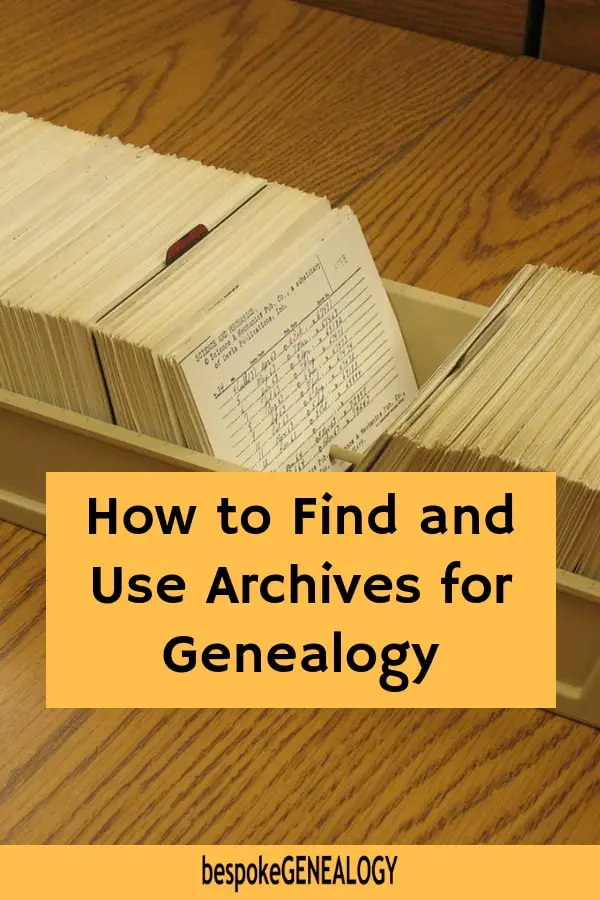
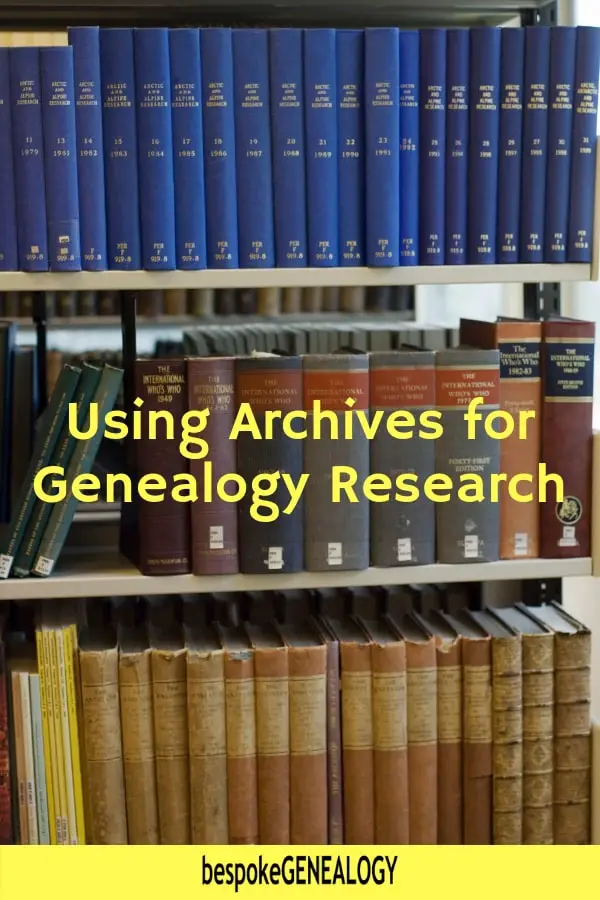
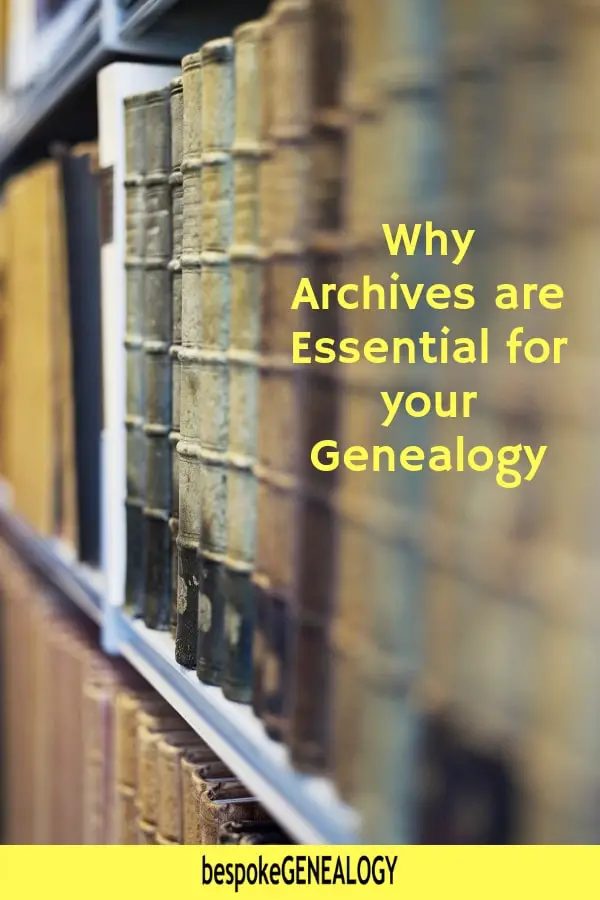
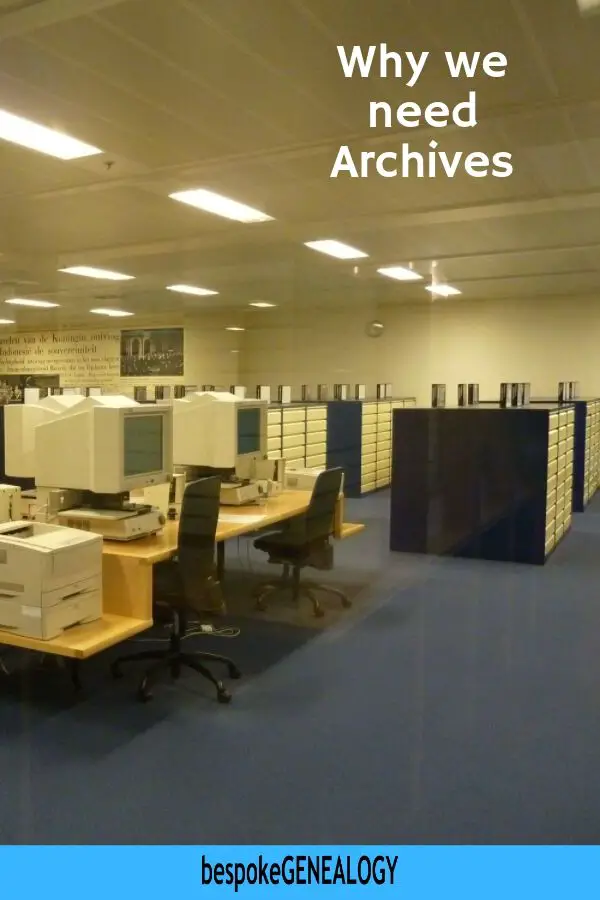
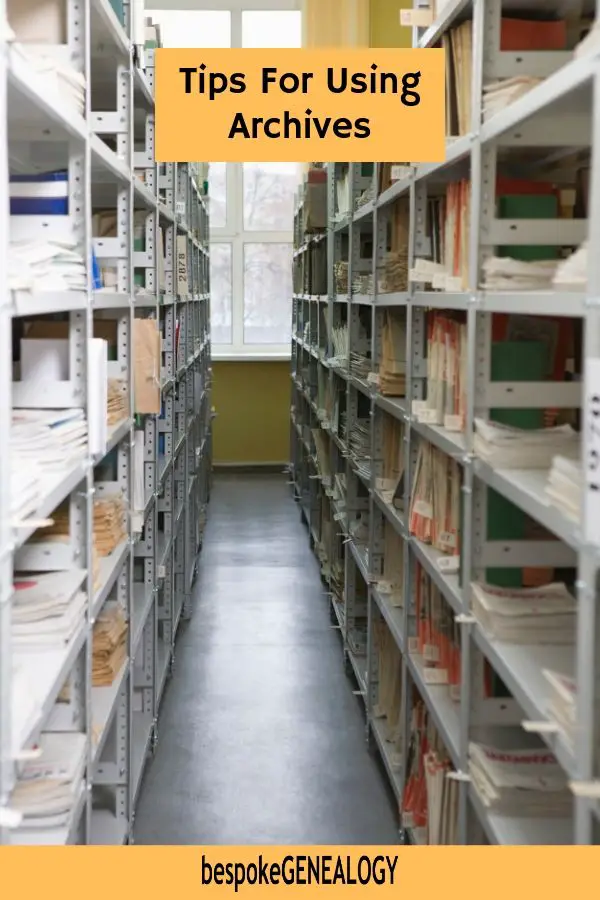
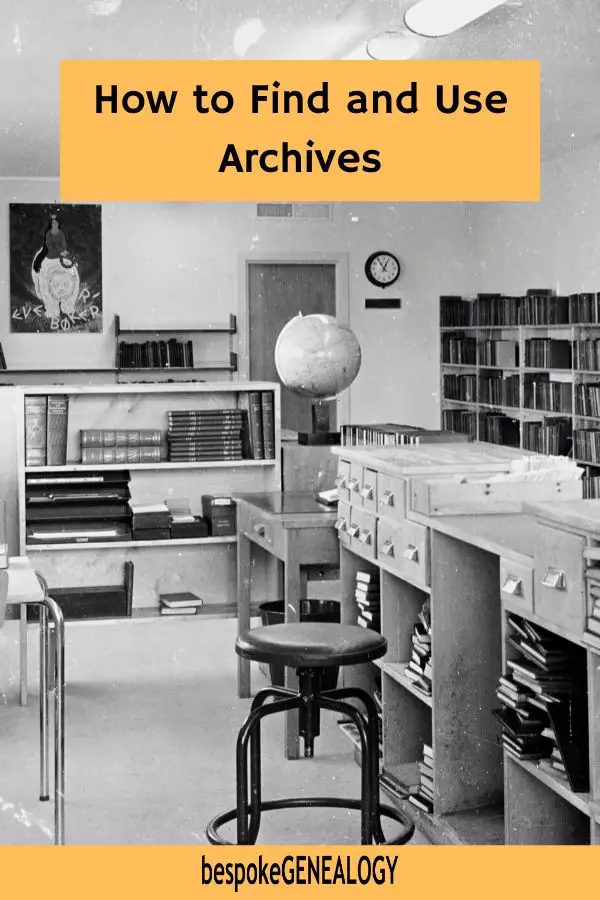
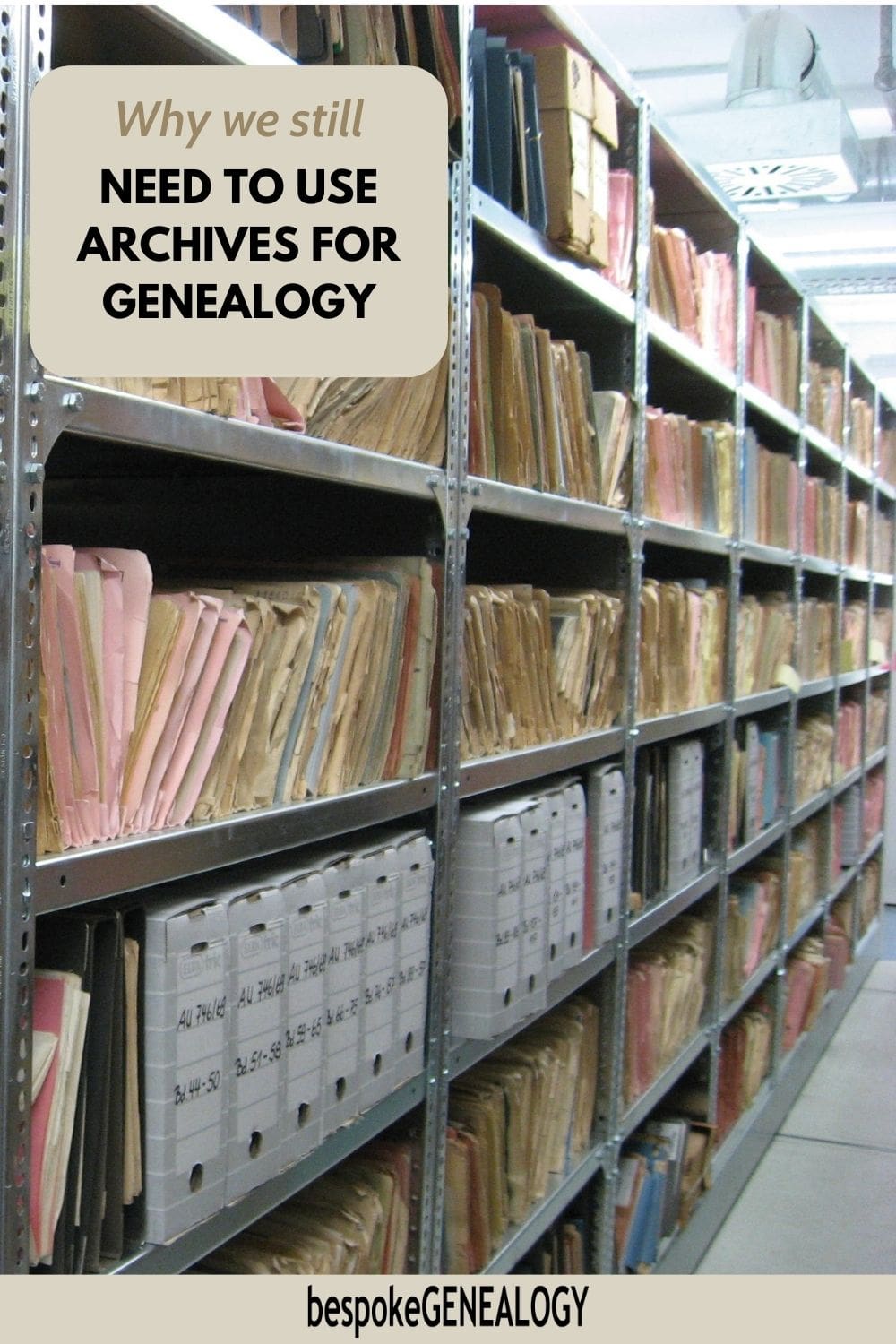


Leave A Comment